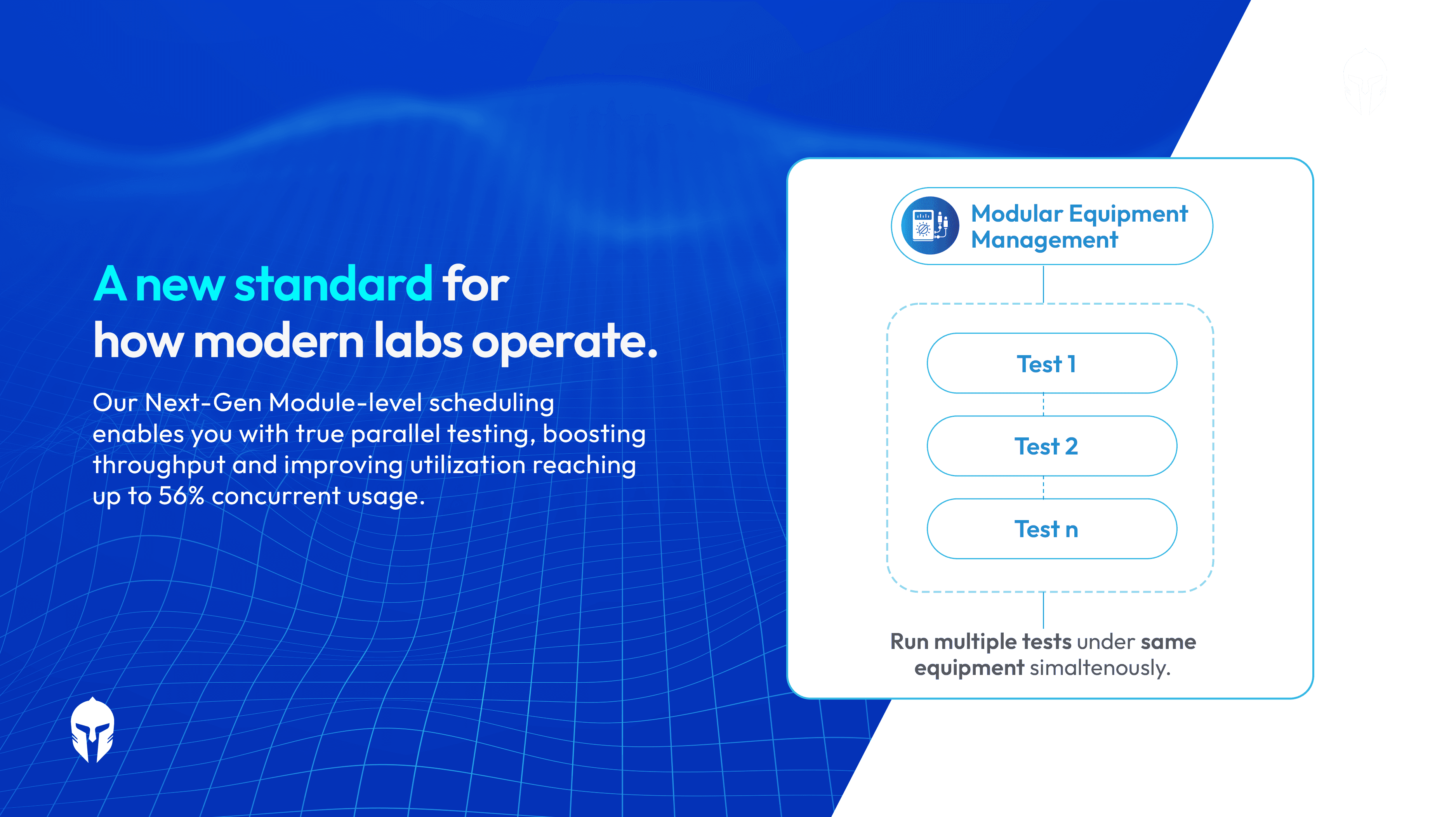Reimagining Equipment Utilization: TITAN’s Vision for Smarter Testing Operations

In today’s testing labs, equipment isn’t merely a tool; it’s the heart of innovation. However, even the most advanced systems frequently remain unused, causing delays and reducing productivity.
TITAN is transforming this by rethinking how complex equipment is used, scheduled, and maintained thus maximizing the potential of every resource.
In the past, a lot of labs relied on Excel sheets for planning their equipment, which caused mistakes, double bookings, and a lack of visibility. After getting regular feedback from customers, it was obvious that labs were looking for a more intelligent, dependable, and reliable solution.
This enhanced feature is designed specifically to address those changing needs; swapping out manual confusion for clarity, efficiency, and genuine control.
The Task: Tapping into Unused Potential
These days, labs are dealing with a common problem: they reserve high-end equipment completely, even if a test only needs a small part of what it can do.
For example:
- A power battery system may have 32 modules.
- A single test may only need 8 modules.
- The remaining 24 modules. Sit idle, unavailable for other experiments.
This all-or-nothing method delays testing timelines, causes bottlenecks, and lowers overall efficiency; not due to a lack of capacity, but because access is rigid.
Rethinking Equipment Management
TITAN is creating a fresh strategy that views equipment as a flexible, modular resource instead of a fixed asset. By dividing systems into independently schedulable modules or channels, labs can boost utilization, cut down on downtime, and speed up validation cycles.
Now, each module can be scheduled, tracked, and maintained on its own; but it still works as part of a bigger system. This way, every part of the system helps boost productivity.
How It Works
- Define Equipment Modules
Complicated setups such as battery testers, test benches, or data acquisition systems are broken down into modules or channels. - Specify Module Requirements
Test planners ask for just the right number of modules they need for their experiment, nothing extra, nothing less. - Intelligent Resource Allocation
TITAN takes care of scheduling just the necessary modules, so there's extra capacity left for running tests at the same time. - Independent Tracking
Each module maintains its own:
a. Scheduling calendar
b. Maintenance history
c. Calibration records
d. Service documentation
e. Utilization metrics
A Real-World Perspective
Homegrown systems/tools and Excel required users to generate 32 separate line items for equipment with 32 modules, managing assignments and maintenance individually for each test. There was no real time unified view to present the overall resource availability and usage. All that changes with Titan. Transitioning from fixed booking to flexible allocation significantly enhances efficiency and operational adaptability.
The most significant benefit of the modular equipment feature is that users can now specify the number of modules they require, and the system will showcase the available options, enabling easy assignment with just a single click.
The Benefits for Customers
- Maximized Equipment ROI
Maximize the use of costly equipment by conducting several tests at the same time on the same physical asset. - Reduced Testing Bottlenecks
Having more parallel tests leads to shorter wait times and quicker development cycles. - Granular Maintenance Tracking
Adjust or maintain separate modules without needing to shut down the whole system, ensuring complete traceability. - Flexible Scheduling
Just ask for the exact modules you need: whether it's 4 modules, 8 modules, or a complete system and let TITAN take care of everything else.
Ideal Equipment Types
This approach is particularly impactful for:
- Multi-channel battery test systems
- Multi-channel data acquisition systems
- Multi-output programmable power supplies
- Modular load banks
- Multi-channel signal generators
In these systems, modular scheduling turns unused capacity into active testing power.
Integration with TITAN
Modular equipment works seamlessly with TITAN’s ecosystem:
- Visual Scheduling – Quickly see module availability.
- Automated Conflict Detection – Prevent overbooking and identify free capacity.
- Work Order Management – Assign modules directly through digital work orders.
- Reporting & Analytics – Monitor utilization at both equipment and module levels.
- Maintenance Coordination – Plan service for modules without disrupting other operations.
The Next Big Thing Is Already Here
TITAN is building this capability to change how testing facilities operate. By enabling granular resource allocation, laboratories can:
- Do more testing with existing equipment
- Enhance flexibility and responsiveness in scheduling
- Keep thorough compliance and traceability records
This vision marks a major advancement for the industry; it enables labs to work not only harder but smarter.
The Future of Testing, Today
TITAN is making modular thinking a reality. As we keep working on this approach, our aim is straightforward: to assist organizations in maximizing the potential of their equipment, minimizing operational hurdles, and speeding up innovation.
Keep an eye out for the launch of these features, along with tips and tools to make modular equipment management a reality in your arena.